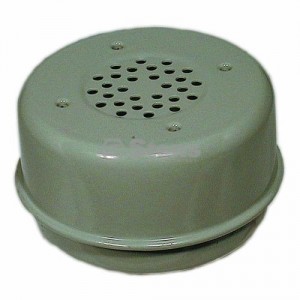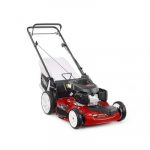Oftentimes people get frustrated with the performance of their lawn mower without realizing that they are to blame. One of the best examples of this issue is with mufflers. A clean muffler keeps your lawn mower (relatively) quiet and improves fuel economy. Meanwhile, anyone who has ever owned a car is familiar with the symptoms and effects of an old or dirty muffler—these include a loud engine, leaking exhaust fumes, and poor fuel economy. In this post, we review how you can tell if your muffler needs to be changed or replaced, and offer some tips for those who choose to change their muffler themselves.
Basically, the easiest way you can tell if your muffler needs to be changed or replaced is when the mower gets especially noisy. Generally, this happens after 1-2 years, although this time frame obviously depends on how frequent you mow your lawn. When you decide that it’s time to change the muffler, there are some considerations you should make. First, wait for the engine to cool—it will stay hot for a good while after it’s been used, so be careful. After you remove the hood, be on the lookout for cuts and sharp edges, as it’s easy to injure yourself handling an old muffler. For this reason, you may want to use pliers. When you do get a handle on the muffler, shake it; if debris spills out, you know that it’s time to change it. Also, a useful way of checking for debris is to tap the muffler with a mallet—if your muffler is very old, it may collapse.
There are some precautionary measures you should always take, not only to protect your muffler but also to protect yourself from personal injury. First, you want to make sure that the area above your muffler is clean. If there is a great deal of debris or grass under the hood, your mower runs the risk of catching fire. Second, make sure to periodically inspect the muffler to make sure that it hasn’t developed any holes or become too rusty.
Because it’s hidden under the hood, it’s easy to overlook the importance of maintaining your muffler. Sometimes you have to look underneath the hood to get at your lawn mower performance problems, and following these tips will keep your mower running peacefully.







